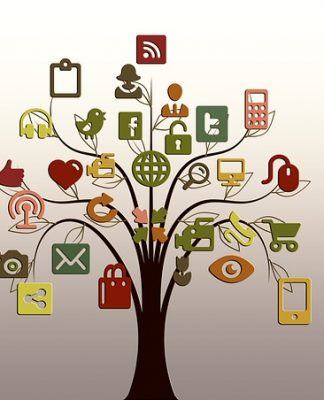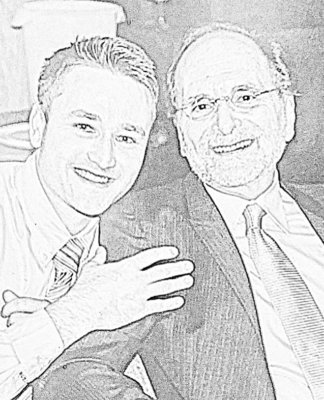So often when we are in physical, mental or emotional pain it feels overwhelming. Often, we begin to become consumed by the pain and it becomes all we can think about even when we try to distract ourselves away from the pain. The pain we all feel is real and it is our body, mind, and spirit’s way of saying something needs to be acknowledged and addressed. Our physical and emotional pain are messengers that something is going on in our system that needs to be addressed. If we keep ignoring the message of the pain it usually gets worse or “louder” to get our attention. This increase in volume from the pain is a very natural process of the body trying to protect itself. And, all the pain is looking for is acknowledgment and to be addressed. Sometimes even if we just say to ourselves I’m feeling this in my body or I am having this emotion it helps us start to deal with the pain. But the key to pain, at least chronic pain, is to Transcend the pain.
Sometimes when I see clients they identify so strongly with their pain that they begin to lose themselves in their pain. If it is a physical issue they will focus on their bodies’ aches and pains and talk about medications or physical therapy. At times people will bring in lists of all the medications they are on and tell me when their next procedures are, and go into great detail about their illness. Often with physical pain issues there are feelings of frustration and anger and a lot of people I find are “mad” at their bodies for betraying them or they are upset with themselves. Usually for most of us, our number one focus is to get out of the pain. Not only do we want to feel better, but we are taught to get out of the pain as quickly as we can. Just think of all of the aspirin, headache, back ache and other medication commercials and ads you have seen or heard in your lifetime. The message from the advertisements is to get out of the pain now.
But what about the chronic illnesses that are lifelong and persistent? Chronic illnesses usually create the most distress as the person feels they are “stuck with” their illness. For many, feelings of hopelessness, disbelief, anger, and deep sadness come upon them. They feel like there is no way out and they begin to identify with the illness. It is as if they begin to lose themselves in the chronic diagnosis. No longer are they Bill or Sandra, they “become” the cancer, copd, diabetes, Chrohn’s disease, bipolar, clinical depression, etc. A good indicator of how much someone is identifying with an illness is how often you hear them talk about aches and pains and how much it is a focus throughout their day.
They are no longer an individual; they have lost that identity, now they feel like they are the patient, that they are their illness. I believe this process is very natural and one that for the most part we all go through once we are given a diagnosis. I think it is our way of integrating this new information into our narrative. For myself I have experienced persistent kidney stones – so I never know when another one may be developing inside of me. But let me point out how I phrased that I experience the kidney stones – I’m not the kidney stones. I am still living my life and I take supplements to help my kidneys function better. But I’m not the illness.
Throughout this article I will reference the work of Dr. Elisabeth Kubler-Ross who came up with the concept of the five stages of grief and loss. The five stages are: Denial, Anger, Bargaining, Depression and Acceptance. These five stages are not always followed in a linear path, but are more reflective of five points on a star. We bounce between these feelings as we experience the shift we are going through in our lives. We go through these stages as our body, mind and spirit adjusts to a diagnosis, bad news or loss of someone we loved. We go through much of the same process when we hear bad news.
What we all ask is “Why Me”. It is hard for any of us to believe that one moment we are fine and the next we have … this issue. One moment I was fine and the next I’m trying to pass a 7mm kidney stone…ouch! It is hard for us to really bring this into our reality of ourselves so we begin to go through the first stage with is Denial or disbelief. A part of us keeps rejecting this idea of our new present reality.
We say “this can’t be” or “I can’t believe this”. We push away from the reality and the pain trying to regain our sense of “self” again. We deny that this has entered our reality, our world. What is happening at this moment is we are beginning to reshape our concept of our present reality.
We are beginning to form a new relationship with ourselves and the world as we know it. You have probably heard people say that once they got the news of their diagnosis their world changed. That is exactly true, their concept of their world changed from the inside out. They no longer have the same self-concept that they had just a few minutes before they received the news. So in many ways it is life changing and it changes our narrative.
After our disbelief the information begins to sink in and we start to feel more emotions around the news. We begin to acclimate to this information with our mind racing and our heart sinking. There are so many things going on at once inside of us it is overwhelming. As people begin to process their feelings what I have seen is one of two things occur. The individual feels a sense of hopelessness and becomes the victim of the illness, or they feel a more empowering emotion which is anger, or they may become very task oriented.
In this context, Anger can be a great motivator and a call to action. You can use the power of this strong emotion of anger to “fight” and conquer the news you have just received. You may even feel more courageous with the anger. If the person has become task oriented they are usually in crisis mode. They are pulling all their resources to research the best treatment, best providers and best procedures. Sometimes there is an obsessive quality to this and that is the anxiety around learning of the diagnosis. The crisis mode and this obsessiveness may go on for a while, but what is looming is the crash. As the person is in the crisis mode they are burning up a lot of adrenaline and energy and it is not sustainable. Often these folks crash and feel overwhelmed, but ironically this is also when the healing starts to happen. The contrast is to these reactions is hopelessness where the person goes into victim mode and gets buried by this news and loses him or herself in the experience. They turn over their power to the illness, versus claiming their own power and “fighting” for themselves. Healing happens when we are no longer fighting with ourselves or an illness, but looking within and saying what does this pain or illness have to say to me? It is asking ourselves to be quiet and still, listening to our bodies and learning what our bodies need to heal and transcent the dis-ease.
Maybe you have gone into victim mode when you have experienced an illness or pain? The pity party of why me and sadness is natural as we begin to adjust to the reality of taking pills, going in for more tests or having scans or procedures. But the real test is whether or not we let ourselves stay in victim mode or do we climb out of it?
One way we begin to work through the news is one of the stages of grief and loss – Bargaining. The bargaining phase is where we say to ourselves or to God, or a higher power – “If only I had done this…”, “I should have known”, “why didn’t I do something sooner”. All of these are ways that each of us has gone back and replayed the scenes of our lives leading up to an event or some devastating news we received. We are pleading with ourselves trying to get a re-do or bargain for a different outcome. It is a game of sorts that we play with ourselves to try and reason and get a better handle on the situation.
We are trying to make sense out of what seems illogical to our rational mind. In my story when I was in excruciating pain and trying to pass the kidney stone I was asking myself, how did I get to this point? I was angry, confused and didn’t really understand what I did “wrong” for my body to begin to create kidney stones. But most of all I just wanted to pass that damn stone (hear the anger). The anger helped me through that process. I could have been calm and meditated, but I was in no mood for that at the time. Try not to judge yourself for the emotion you feel over your condition.
Even after my first stone and I learned more from my doctors and my own research what may be the cause of a kidney stone I was still asking myself, what did I do wrong – the familiar “why me”.Many people tend to get “stuck” in the next stage of grief and loss which is Depression. They begin to feel overwhelmed, victimized, hopeless, helpless and their view of the world becomes clouded because of the illness. I believe what they are doing is identifying too much with the illness. They have lost themselves in the diagnosis and the illness and they are essentially saying to themselves and others “I am cancer” versus “I have cancer, or I am experiencing cancer”. The more a person identifies with their illness this may further reinforce the victim mode and the devastating depression.
But sometimes it’s hard to not see above the illness especially when you are now taking an arsenal of pills each day and have weekly appointments for specialists and procedures. It’s hard to put the illness in perspective when you are researching about the illness obsessively and probably making different lifestyle choices because of the pain and discomfort. All of these things are real, overwhelming, painful, frustrating and tiring.
What I am asking you or anyone you know who is in pain or who has received a chronic illness diagnosis is once you have felt the shock and are beginning to go through the stages of grief and loss that you begin to consider – you are not your diagnosis – you are still you, and this is just what you are needing to deal with at the moment. You are greater and grander than anything your body, mind or emotions can produce. You are not your illness – you are experiencing the illness.
All of this leads us to Acceptance. Maybe you will never be able to accept you have a certain illness, but consider this, not accepting means that you will be in a battle with yourself for a very long time. In his book After the Diagnosis: Transcending Chronic Illness, Dr. Seifter focuses on these maxims: Be Yourself, Know Yourself, Transcend Yourself, Forget Yourself and Forgive Yourself. His message is about growing beyond the diagnosis and reclaiming your life.
Acceptance, even partial acceptance helps us to move on and reclaim our life and transcend the diagnosis. Staying angry, staying hopeless, staying in crisis mode and upset will not help us heal. Part of the healing is about forming a relationship with the diagnosis and illness. Instead of fighting it, work with your body and come up with a plan that fits you where you feel in control, but you are also being good to yourself. We could look at each of these approaches and judge as to which is the right way. But, who are any of us to say to another how they should be feeling about their illness. Getting a diagnosis of any kind is deeply personal and begins your own journey with that new reality.
What to do:
Visualize whatever you are experiencing right now – it could be a headache, feeling sad, anxiety or another physical issue and picture this issue as something separate from yourself. So for example, if you are feeling anxious begin to picture the anxiety as being in localized pockets in different parts of your body. You could conceptualize this as having a shape, size or color. You can picture this as being like a coat or blanket draped over you. Once you have an image that works for you does it feel like whatever you are experiencing as a part of you, or are you much bigger than it? You may say, well I feel depressed all over not just in pockets or in one spot. I get it when clients tell me that, but what we are attempting to do is to separate from the illness because too many people identify too strongly or completely with their illness.
Here’s another visualization that I use. Let’s say you and I are taking a hike through a beautiful countryside on a sunny day. We feel complete within ourselves and content. We are feeling good and enjoying the beauty of nature when all of a sudden it begins to rain. We continue to walk, but we are getting wet. We may even say something like “I’m all wet”. As we continue walking the sun comes out again and dries us off. So at the end of the hike, after we have dried off, or maybe a little damp, do we still identify with the statement “I’m all wet”? Probably not, but this is exactly what many people will do once they are given a diagnosis of cancer or another devastating illness. They will identify and lose themselves in the illness and they become “I’m all wet”. You are still you even if you are experiencing your illness. Ultimately it’s all about perspective. All of this is very difficult and I do not mean to trivialize any form of pain that any of us may experience. My point is to challenge each of us to rise above the diagnosis and to reclaim our sense of self. To not get lost in the diagnosis, but to know this is something we are experiencing – it is not who we are. Fortunately we live in an age with many ways to deal with and treat illnesses of all sorts, but it is still hard to go through the experience.
Not everyone may be able to get to complete acceptance when it comes to a chronic illness, but maybe there are parts of the illness that you can accept. Maybe you can accept the fact that you need to take a medication because of the illness, or that you accept you can no longer do certain activities. Or maybe you can’t accept that you are not able to run with your children as they play. Or maybe you cannot accept the fact that you got it in the first place, or that you, especially you, would have gotten such an illness? Some people never reach acceptance with a diagnosis of a chronic illness. It is a difficult and confusing road that many people are on.
I find that young people have the hardest time reconciling and accepting a chronic illness diagnosis. It is hard for them to picture themselves at 22 having to use a machine that helps them live. I have so much compassion for these young people as so few of them have any frame of reference for dealing with an illness. So few of them know anyone their age with such physical, mental or emotional issues. Older adults usually have many examples of family, friends and colleagues who have had different illnesses or accidents which have happened to them. So the experience of illness is normalized for an older person, but young people don’t have these examples. When I’m working with a young person who has received a chronic diagnosis I work hard to give them perspective, but I know that this is something that will come in time for them rather than a quick fix.
What I also find is people tend to be really mad or stuck in the Anger phase even tho they are going and doing all of their treatments etc. These are the people who do things they shouldn’t do while on a treatment such as eating things they know are bad for them, or sneaking cigarettes or alcohol. It’s really a game they are playing with themselves. They are trying to regain a sense of control and I think at some level it is a way of them giving the middle finger to the diagnosis or illness. In either case, this type of acting out really isn’t the answer. When I talk with clients about their acting out they sheepishly admit they know it’s wrong and they shouldn’t do it. Then we talk about the why to understand the motivation behind the behavior. This is where they can make the most progress because once this game is in the conscious mind, it is harder to play it unconsciously – it’s not as fun.
So I’ve mentioned that these steps, Denial, Anger, Bargaining, Depression and Acceptance as being points of a star. This progression through these stages is rarely linear. Sometimes we go from one to another as we are sad about some parts of the news, or we have accepted others, or that we are still blaming ourselves, or maybe we are still angry. It is all a natural process, know this and be gentle with yourself as you make your way through the stages.
Another helpful way of dealing with news of an illness is to ground yourself in a reality of who you are. Connect with something you love to do and when you are doing this activity you feel alive and you feel yourself. Know this self-expression is still a part of you, you are still yourself, you just know more about what is going on within you now.
Whatever you are feeling pained about, see if you can transform this feeling of pain and take the energy away from being hopeless or helpless. Recognize what you can do today that is within your limits and pain tolerance and then be good to yourself as you say I want to do all of these things, but for now, all I can do are some of these things. Redirect the energy you would normally use to do things and transfer the energy into just being as you are healing.
Remember there is an I in illness and a WE in wellness. Reach out and connect with others and don’t isolate in your pain or healing process. Connection reminds us we are not alone and also helps the healing go faster.
Robert Jackman, LCPC www. robertjackmantherapy.com
Helpful Resources:
After the Diagnosis: Transcending Chronic Illness – Seifter























